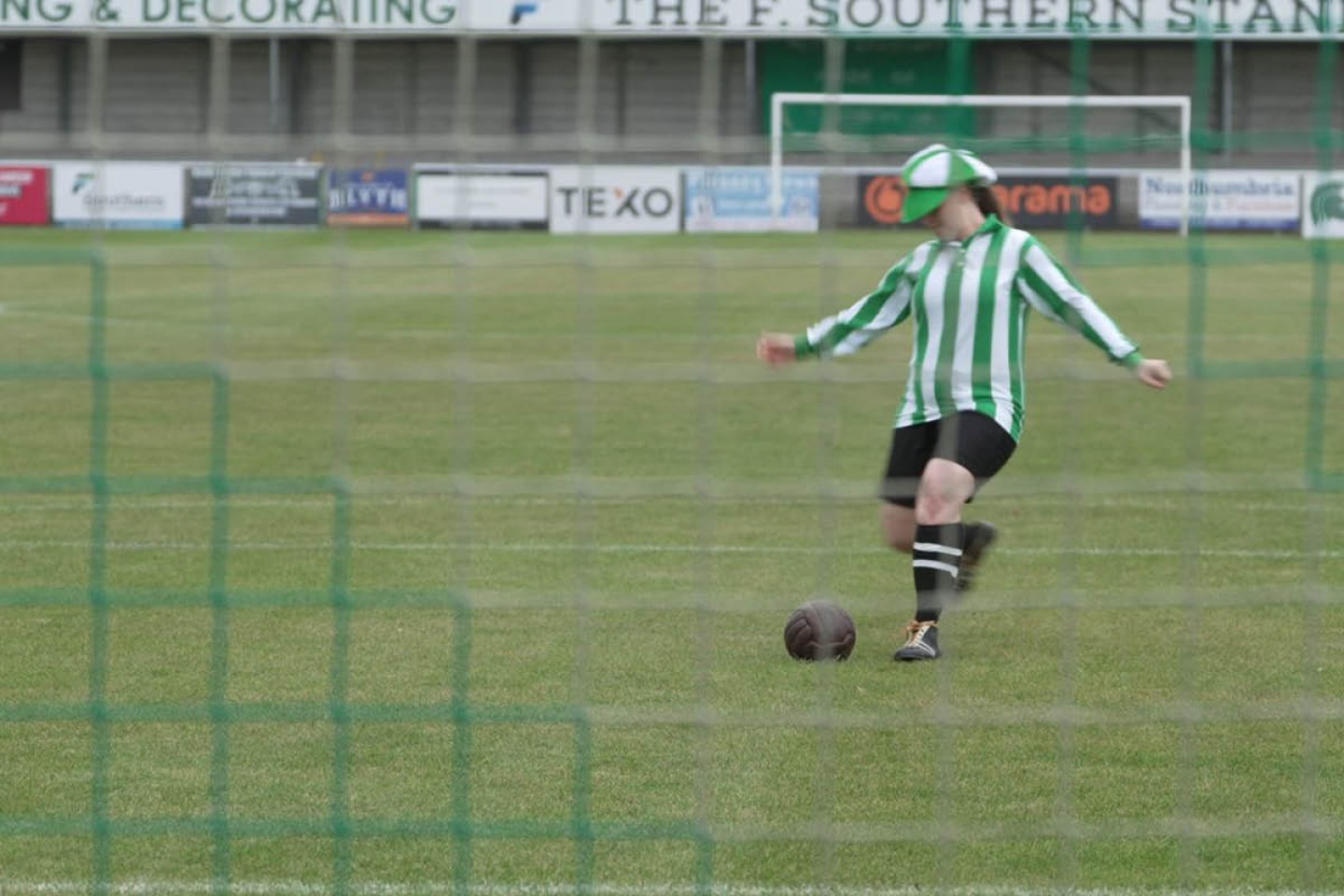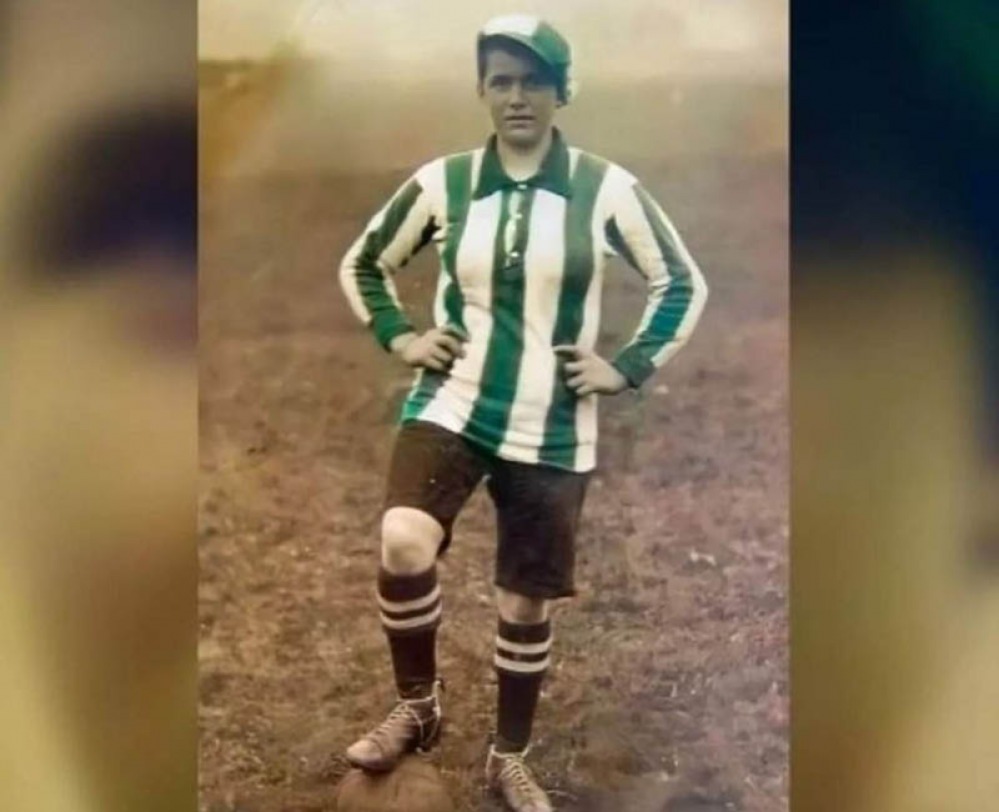Why You Need to See Wor Bella at Newcastle Theatre Royal in April

Wor Bella tells the story of Blyth's Bella Reay, a munitionette and star of women's football during the First World War
Local playwright Ed Waugh tells this story through the eyes of Bella Reay, a footballer from Blyth, and one of the stars of the time. The one-woman play first toured here in 2022, but returns to Newcastle Theatre Royal at the end of April, with Chester-le-Street’s Catherine Dryden taking the lead role.
‘Most of my stories are about forgotten, Geordie, working class heroes,’ says Ed. ‘These people have been forgotten, and what we try to do is bring these fantastic stories to life.’
The status of women’s football has always intersected with broader debates about the status of women in society, and exploring this was clearly a priority for Ed. ‘When the men were conscripted in 1916, women went into the workplace and the factories. Prior to that most women in this region went into domestic service,’ he explains.
‘They got money and wore trousers which was revolutionary – when they played football they were wearing shorts and showing their knees!


‘These working class women personified a spirit that they could go out to work [and] they should have had equal rights’ says Ed. However, the progress that this period seemed to promise did not emerge. ‘They were kicked out of the workplace once the armistice was signed,’ says Ed. ‘These women who had saved the war effort weren’t allowed to vote. They didn’t get the vote until 1928.’
Adding insult to injury, in 1921 the FA banned women’s football from being played on the professional grounds and pitches of affiliated clubs. ‘People like Bella could have been professionals [but] their football careers were curtailed when they were in their teens,’ says Ed.
Ed became aware of Bella’s story after hearing about a book by Patrick Brennan, The Munitionettes: A History of Women's Football in North East England During the Great War. ‘I was just absolutely intrigued,’ Ed says. ‘133 goals in 30 matches. It doesn’t matter what standard of football you play, that is an incredible haul of goals.’
‘There were hundreds of teams at the time, and at least 50 in the region, so I wanted to tell the story through the eyes of Bella Reay. Because Bella was the main player in the region, if not in the whole of the country. What made the North East unique was that the North East was the only area in the country that actually had a cup. Other areas played games, there were friendlies, there were no leagues. In the North East, we had the Munitionettes’ Cup.’
This was a knockout cup, played between 26 teams from across Northumberland and down to North Yorkshire, and it culminated in a final played between Bella’s team (Blyth Spartan Ladies), and Bolckow, Vaughn & Co (a team of steelworkers from Middlesbrough). A crowd of 15,000 turned up for the match at St James’ Park in 1918, and when it ended in a draw, 22,000 flocked to Ayresome Park to see the Spartans’ subsequent victory.
This is not the first time that Catherine Dryden, who will be taking on the role of Bella, has worked with Ed, having performed in his play Amazing Grace about another of the North East’s heroines, Grace Darling, in 2012. She tells me that her family history is firmly rooted in the industrial heritage of the region: one grandfather worked in the shipyards and another as a miner. ‘For me to represent the region that my family is from is huge,’ she says. ‘It really does mean a lot to be able to work in the region, work in my accent and tell true stories of fantastic people. It’s an honour.’
Catherine has been brushing up on her football skills at home, but stamina will be the key; like Bella, she will need to perform for an hour and a half (with a break at half time). Thankfully, she does have one teammate to help her through…
‘Alan Shearer does an original to camera piece,’ Ed tells me. ‘Well, she was the Alan Shearer of her day!’







